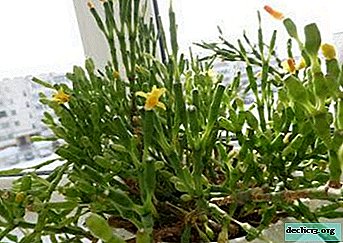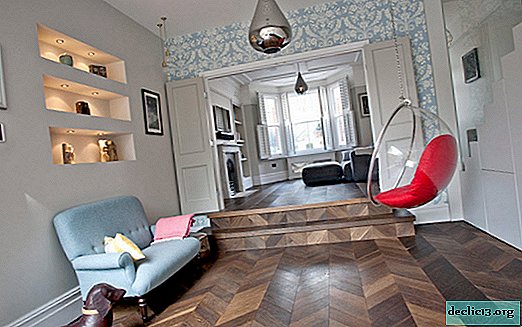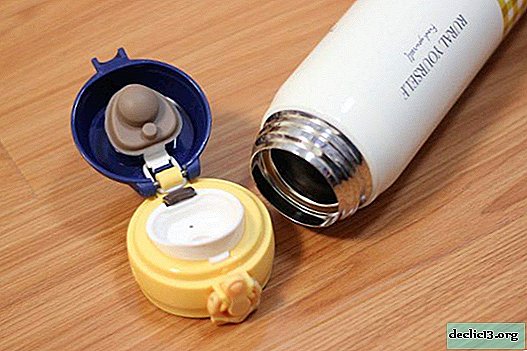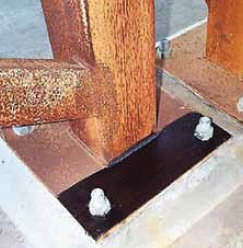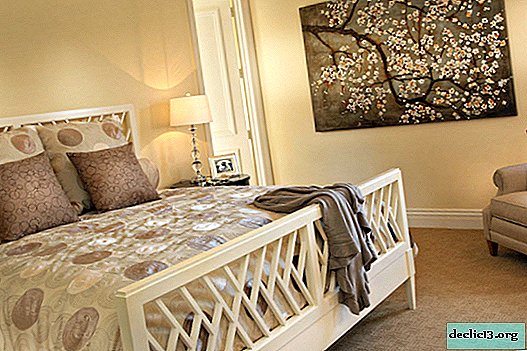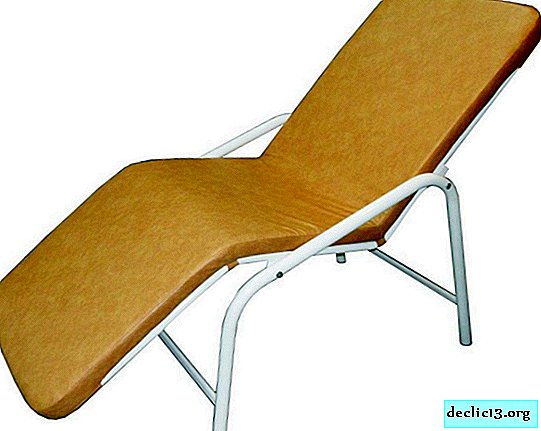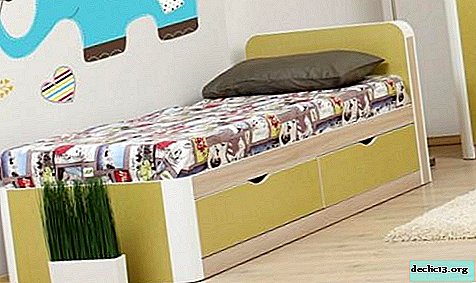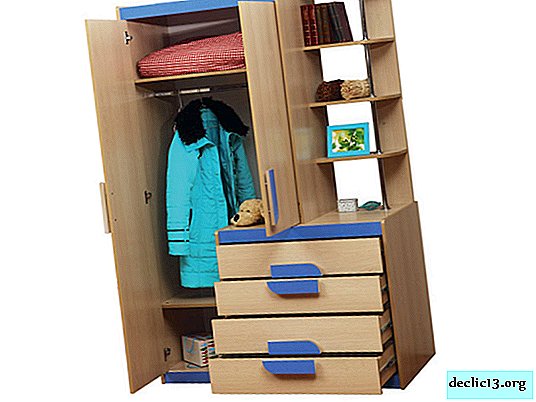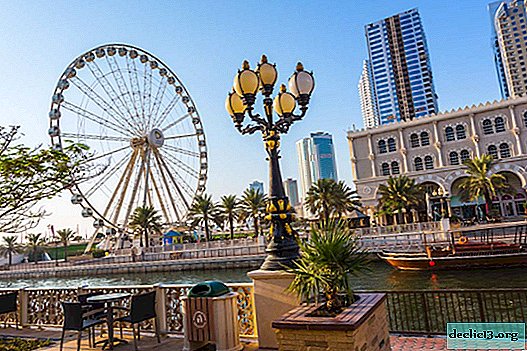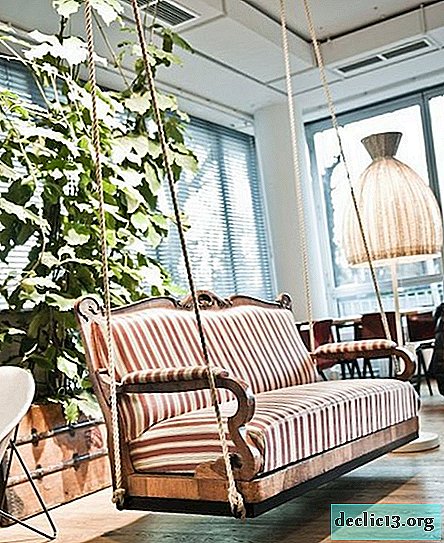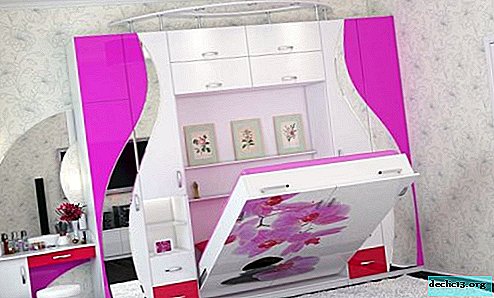Visor above the porch: design options
The decent exterior of the central entrance to a private house in some cases creates a more pleasant impression than its surroundings. That is why it is worth paying special attention to its design, in particular the visor above the porch. Efficiency and external elegance, of course, is important, but it is not its main function, because in the first place it is a means of protection against external factors, in particular the “vagaries” of the weather.
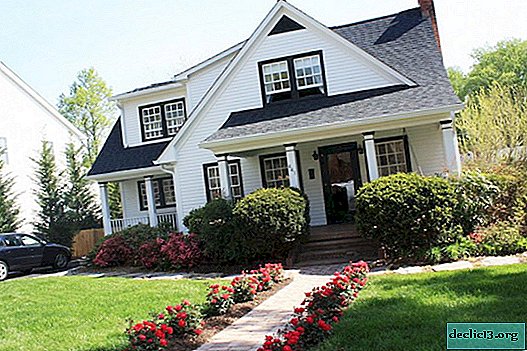










Visor requirements
The presence of a special canopy positively affects several points at once. The first of them is the protection of the front door from the negative effects of rain and ultraviolet rays of the sun. The second is to protect a person from rain, hail or snow during the entrance and exit of the building. The third is an aesthetic purpose, a decorative ornament for a perfect exterior.










In order for the visor to last for many years and not have to constantly redo it, you need to match the visor to a number of minimum requirements:
- The construction must support not only its weight, but also the precipitation that may be on it. Therefore, when designing and constructing, it is necessary to calculate the total mass, which will create a load on the mount.
- It is optimal that the visor protects not only the front doors, but the entire porch as a whole.
- It is necessary to provide for the presence of a water drainage system (gutter, storage tank or stormwater drainage system).
- The visor should be combined with the porch, the roof of the house and the exterior as a whole. Exact match is not required, the main thing is that there is a color combination and correctly selected material.
Factors to consider when designing a visor
Before you take up the drawings, you need to decide on the main parameters of the structure:
- The material from which the visor will be made, it must harmoniously fit into the architecture of the building and guarantee the strength of the visor.
- Determine the type of structure - single or gable, domed, etc.
- Calculate the size of the visor, its protrusion length and longitudinal width (the width is half a meter greater than the width of the front door; at least 80 cm long; you need to calculate the angle so that water, snow or debris do not accumulate on the visor).
- Location - determine the place where it will be installed (front door, service or rear exit).
Design Options
It is not difficult to build a visor, 1-2 days of work are enough for this, in order to do it, you can use materials that are widespread and not very expensive. The main difficulty lies in the selection of a suitable form of construction.
Popular types of visors above the porch:
- Shed - suspended or supporting roof, which is installed at an angle for the outflow of water and melting snow. Subspecies - straight, concave and shed with a gap.
- Gable - visor with two inclined planes. This type is more reliable, since the load of the lying snow is evenly distributed between the two surfaces.
- Tent canopy - has a semicircular shape, its end is framed by a porch on both sides. Subspecies - "marquise", a dome and an elongated dome.
- Arched visor - has a rounded shape and completely covers the porch. Depending on the width, it can be of ordinary or elongated type.
Advantages and disadvantages of the materials used
Forged visor
Such a visor is very presentable and luxurious, decorative forging will emphasize the elegance of the exterior design of the house. It is worth noting that it is quite expensive, but it is not necessary to make it so completely - it is enough that there are forged elements. Forging is best combined with metal, plastic and metal.




Installation of this type of visor is a difficult and responsible task, since it has a rather heavy weight. It is best to entrust its installation to professionals in order to avoid the risk of a visor falling under the load of accumulated snow.


Polycarbonate
A number of advantages:
- The scattering of the rays of the sun, which will provide natural light.
- Lack of deformation.
- It does not give in to decay or corrosion, does not fade in the sun.
- There is no possibility of the formation of fungus or mold.
- Flexibility.
- A wide selection of color options and material thicknesses to choose the best option.








 The main disadvantage of the material is its instability to ultraviolet radiation. If the material is not equipped with a protective coating, then soon it will lose a presentable appearance and will lose its former strength.
The main disadvantage of the material is its instability to ultraviolet radiation. If the material is not equipped with a protective coating, then soon it will lose a presentable appearance and will lose its former strength. Metal tile
Metal tile
This type of canopy is characterized by a high level of strength and decorative elegance. Despite this, many believe that such a visor looks rather hard and is not always appropriate. The best option for its installation will be in the case when the roof covering is identical, moreover, installing a roof and a canopy can be saved at the same time using the rest of the materials for the construction of the canopy.
Advantages:
- Sustainability.
- Low weight.
- Long service life.
- Heat resistance.
- Elegance.
Replacing the bitumen metal tile, you can avoid its only drawback - strong noise during rain.



Plastic coating
For the visor above the porch, you can also use special PVC plates whose properties are identical to polycarbonate, but plastic will be much easier and cheaper. Having picked the right color, you can harmoniously combine it with the exterior of the house.
Wooden visor on the porch
A visor made of wood is optimally suited for massive wooden houses and rustic-style buildings. The tree in this case is used as a frame, the roof will best be made of roofing material, slate or tile. Before installation, it is necessary to treat the tree with special protection against rot and insects.
Metal or decking
A metal canopy is an inexpensive and easy to develop option, which will require the ability to work with a welding machine. If there is no such experience, then you can use bolts and nuts.


 The main advantages of such a visor will be a high level of strength, a long service life, but the drawback is the mandatory process of processing the material with an anti-corrosion substance. In addition, it should be noted that this design will have an impressive weight, so you need to pay great attention to the fastening and its strength.
The main advantages of such a visor will be a high level of strength, a long service life, but the drawback is the mandatory process of processing the material with an anti-corrosion substance. In addition, it should be noted that this design will have an impressive weight, so you need to pay great attention to the fastening and its strength.




An alternative to metal is corrugated board with a polymer protective layer. Disadvantages of corrugated board:
- Low impact resistance.
- The material is inconvenient in deformation, not used for spherical visors.

